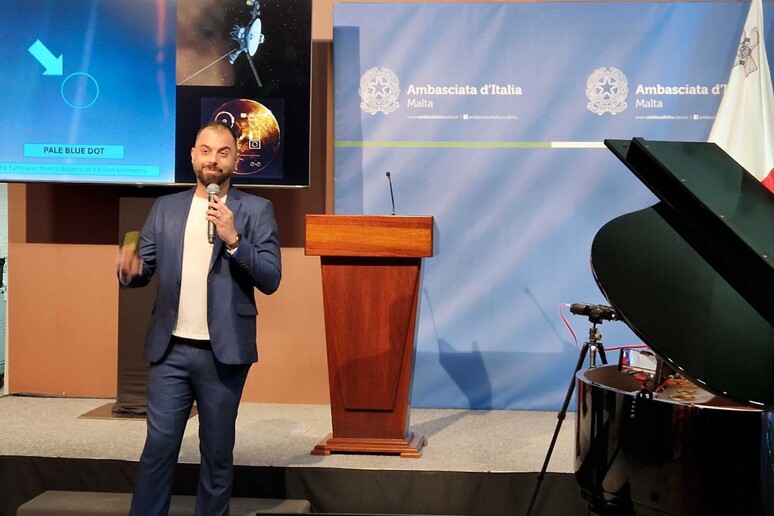Malta, too, wants its place in Space and has chosen Italy - which has been in orbit for exactly 60 years - as a partner, guide and potential reservoir of talent in aerospace research to be entrusted with the funds of its Space Strategy formalised in 2022.
With an evening event organised at Malta's Esplora museum, the Italian embassy in Valletta led by Fabrizio Romano together with Xjenza Malta (the government agency for scientific development) and its CEO Silvio Scerri celebrated the 60th anniversary of the launch of San Marco 1, which in 1964 made Italy the first country after the USSR and the USA capable of putting into orbit and controlling an artificial satellite. Since then, Italy, as underlined by Romano and the representatives of the Italian Command for Military Space Operations sent by the Defence General Staff (Lt. Col. Giovanni del Genio and Col. Alessandro Galliani), has been able to remain at the highest level in the space technology sector, to the point that, for example, 40% of the modules that currently make up the International Space Station were produced in Italy and our country is the second in Europe for military assets in orbit.
Scerri recalled that Malta began its journey towards space in 2012 with the signing of the first cooperation agreement with the European Space Agency (Esa), reinforced with a second agreement in 2017 and the launch of the national space research fund in 2018. Participation in Esa programmes was approved this year by the Maltese Parliament.
The concrete results of the collaboration between Italy and Malta were represented by Leonardo Barilaro, a 42-year-old Italian aerospace engineer who heads a research programme on cold welding for emergency repair of spacecraft financed by Malta, but also a professional musician known as 'The Space Pianist' with collaborations with stars such as cellist Tina Guo and composer Hans Zimmer, author of the soundtrack of 'Intestellar'.
The multifaceted Barilaro, who holds a chair at the Maltese polytechnic university Mcast, performed at the piano, playing parts of his AstroBeat project, a concert streamed from the International Space Station. "Leonardo," emphasised Omar Cutajar, director for research at Xjenza Malta and forerunner of the Maltese Spacel programme, "is an example of what Malta can offer to Italian talent, which we await here with open arms.
"Malta looks to Italy as a guide for the development of our programme in space exploration and research," Scerri emphasised, "Italy is a key player in space research and missions through the Italian Space Agency (ASI) and its industrial and scientific partners.
"With this event we celebrate with our Maltese friends the first 60 years of Italy in Space," said Ambassador Romano. "Since the launch of San Marco 1 in 1964, Italy has continued to demonstrate an extraordinary commitment to space exploration and the development of cutting-edge technologies. Today, we are not only celebrating past successes, but also looking to the future of cooperation with an important EU partner like Malta, knowing that our bilateral collaboration can have a significant impact on the regional and global challenges of the coming decades".
ALL RIGHTS RESERVED © Copyright ANSA











